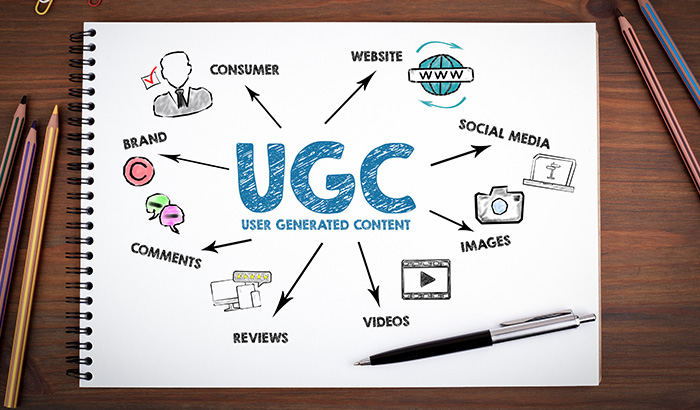Query Form
Query Form
What is SEO and How Does It Work?

#1. What is What is SEO and How Does It Work?
Search engines are becoming the go-to resource for information, goods, services, and solutions in the digital age. Businesses need to make sure that their target audience can find them because billions of searches are made every day. This is where SEO, or search engine optimization, is useful. An essential component of digital marketing strategies, SEO raises a company's search engine ranking, which increases visitors and, eventually, conversions. What is SEO? The process of improving a website or web page to increase its exposure and ranking in search engine results is known as search engine optimization or SEO. By improving your website's usability and search engine optimization, SEO aims to increase "organic" (non-paid) traffic from search engines. To provide the most pertinent results when a user types a query into a search engine, algorithms consider a variety of criteria. Recognizing these elements and optimizing your website for them is the aim of SEO. Your website may rank higher in search engine results if you do this, which will raise the possibility that people will visit it. Why is SEO Important? Most online interactions start with a search engine query. Research shows that almost 75% of people never look past the search engine results page. This implies that you are losing out on a significant amount of potential visitors to your website if it is not ranked highly on search engine results pages (SERPs). Here are some explanations for why SEO is crucial: Visibility and Traffic: Your website receives more exposure and traffic the higher it ranks in search results. Credibility and Trust: People frequently view websites that rank highly in search results as being more reliable and authentic. User Experience: In addition to raising your ranking, effective SEO techniques also improve user experience, which raises engagement. Cost-Effective: SEO is an organic technique that can provide long-term results without ongoing costs, in contrast to paid advertising. Competitive Advantage: It's important to stay one step ahead of your rivals, and SEO gives you the ability to do so in search engine results. How Does SEO Work? SEO is a long-term plan that uses a variety of approaches; it is not a one-time event. Enhancing your website's reputation, content, and structure will help search engines like Google find and rank it more quickly. 1. Understanding Search Engines: Search engines such as Google, Bing, and Yahoo search the internet using sophisticated algorithms to get the best results for users' queries. These algorithms assess a wide range of parameters to choose which web pages to display in response to a given search query. Crawling, Indexing, and Ranking are the three main processes search engines follow: Crawling: Search engines use bots (also known as "spiders" or "crawlers") to discover new web pages. These bots follow links on websites to find new or updated content. Indexing: Once a search engine finds a page, it stores and organizes it in its database, known as the index. This index acts as a library of all the websites the search engine has crawled. Ranking: When a user conducts a search, the search engine sorts through the indexed content and ranks the results based on relevance, quality, and authority. The goal is to provide the most helpful and accurate results to the user. 2. SEO Components: SEO is divided into several components, which all contribute to optimizing a website for search engines. These components include: 1. On-Page SEO: On-page SEO refers to the optimization of elements on your website that directly impact search engine rankings. It’s essential to ensure that your site is easily accessible to both users and search engines. Key on-page SEO factors include: Keyword Research and Usage: SEO's foundation is found in choosing and utilizing the appropriate keywords. The words or phrases that people type into Google are known as keywords. To aid search engines in determining the main topic of your content, include pertinent keywords in your title tags, headers, and body copy. Title Tags and Meta Descriptions: Title tags and meta descriptions are the clickable headlines and short summaries that appear in search results. These should include target keywords and be both compelling and informative. Header Tags (H1, H2, H3): Properly structured header tags (such as H1 for the main title and H2/H3 for subheadings) help organize your content for both users and search engines. URL Structure: Ensure your URLs are simple, clean, and contain relevant keywords. A well-structured URL not only makes it easier for search engines to crawl but also improves the user experience. Internal Linking: Link to other relevant pages within your website to enhance navigation and distribute link equity across your pages. This helps search engines understand your site structure and keeps users engaged. Content Quality: Search engines prioritize high-quality, original, and informative content that answers users’ queries. Create valuable, long-form content that addresses user intent and incorporates relevant keywords. 2. Technical SEO: Technical SEO refers to the non-content elements of your website, focusing on its infrastructure and backend. This includes: Website Speed: Fast-loading pages are crucial for SEO. Search engines prioritize websites that provide a good user experience, and slow websites can negatively affect your rankings. Mobile-Friendliness: With the rise of mobile searches, search engines now use mobile-first indexing, meaning they primarily rank the mobile version of websites. Ensure your site is responsive and offers a seamless experience on all devices. Sitemap: A sitemap is a file that helps search engines understand the structure of your website. Secure Website (HTTPS): Google gives preference to secure websites, so having an SSL certificate and switching to HTTPS is a critical ranking factor. Canonical Tags: These tags help avoid duplicate content issues by pointing search engines to the main version of a page. 3. Off-Page SEO: Off-page SEO refers to actions taken outside of your website that impact your search engine rankings. The most important off-page SEO factors include: Backlinks: Building links is a crucial component of off-page SEO. Incoming links from other websites are known as backlinks. Search engines will view your site as more credible the more reputable, high-quality websites that link to your material. Social Signals: While shares, likes, and comments are examples of powerful social signals that can boost traffic and business visibility, social media activity alone does not directly affect rankings. Brand Mentions: When your brand is mentioned in online forums, blogs, or news outlets, it enhances your credibility and signals authority to search engines. How Search Engines Rank Pages: While search engines don't disclose the exact algorithms used to rank pages, experts agree that a combination of factors determines ranking. These factors include: Relevance: How well your content matches the user's search intent. This is why keyword research and usage are vital. Authority: The quantity of high-quality backlinks connecting to your page establishes its authority.The more trusted websites that link to your content, the more authoritative your page becomes. User Experience (UX): Search engines value sites that provide a good user experience. This includes having a mobile-friendly design, fast load times, and easy navigation. Content Quality: Pages with valuable, well-written content are more likely to rank higher. Content that engages readers and provides solutions to their queries is preferred. On-Page Optimization: The use of relevant keywords, clean URLs, optimized images, and proper internal linking are all key on-page SEO factors that influence rankings. Mobile Optimization: Websites that are mobile-optimized rank higher because they provide a better experience for the increasing number of mobile users. Common SEO Mistakes to Avoid: SEO is a complex field, and mistakes can hinder your site’s ranking potential. Here are some common SEO mistakes to avoid: Keyword Stuffing: Cramming too many keywords into your writing to skew search results. Penalties may follow, and the user experience is negatively impacted. Ignoring Mobile Optimization: If your website is not optimized for mobile visitors, it could negatively impact your results as mobile traffic keeps increasing. Duplicate Content: If you have duplicate material on your website, search engines may become confused and your site's authority will be diminished. Neglecting Technical SEO: Insufficient technical SEO could prevent search engines from properly crawling and indexing your website. Ignoring Analytics: It may be difficult for you to see problems and make the required adjustments if you don't monitor and evaluate your SEO performance. Best SEO Practices: To be successful with SEO, you must adhere to recommended practices that benefit your audience and match search engine algorithms: Regular Content Updates: Continuously update your website with fresh, relevant, and high-quality content. Monitor Performance: Use tools like Google Analytics and Google Search Console to track your website’s performance and identify areas for improvement. Optimize for Voice Search: As voice search continues to grow, optimize your content for conversational queries and long-tail keywords. Create Shareable Content: Content that is shareable across social platforms can generate more traffic and backlinks. Focus on User Experience: Ensure your website is fast, mobile-friendly, and easy to navigate. In summary: Enhancing visibility, creating a lasting online presence, and generating organic traffic are all made possible with SEO. To guarantee that your website appears higher in search results, it combines off-page, on-page, and technological techniques.
Query Form
Follow Up on Social Media for Daily New Search Engine Update
Subscribe to Get the Latest Updates on the Search Engine World and How We Can Help Your Business
Note: Please enter a valid email id
Let’s Get to Talkin’
Support
Mail us for:
Complaint/Suggestion
Call Us
+91 9992229755
+91 98759 29761
Our Trusted Partners



© 2025 Career Infowis IT Solutions. All Rights Reserved.
























